In early civilizations, woodworkers were responsible for laying the foundation of life, optimizing everything from shelter to hunting to travel. In modern times, working with wood is a lifelong passion for craftsmen. And the most talented are creating uniquely beautiful objects out of nature’s most versatile material.
Step aside, pine armoire. Here’s what the real lumber innovators have been boldly crafting. Meet the greatest woodworkers in America.
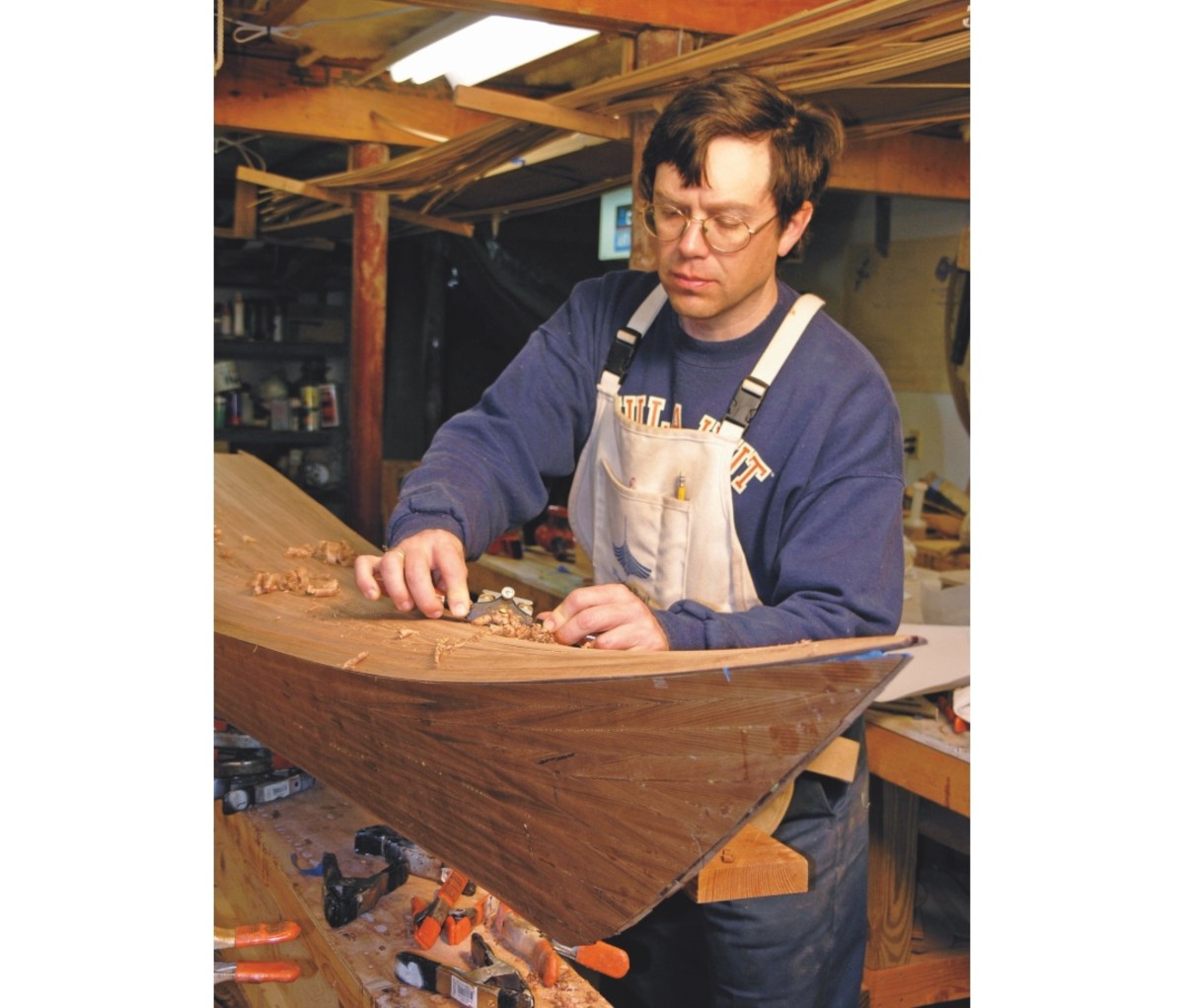
Nick Schade — Guillemot Kayaks
Nick Schade started building kayaks because he couldn’t afford to buy his own sea kayak from a retailer. This was in 1986. He was fresh out of college, where he studied electrical engineering, living in Maine and wanting to explore the coast. He didn’t possess much woodworking experience, but had helped his brother construct a strip-built canoe—where thin pieces of wood are glued together over a form—and was confident he could figure it out. He based his designs on pictures of kayaks he’d seen in magazines and got to working. It took him three months.
“I couldn’t get a job right out of college, so I built a boat,” Schade says of the project that launched a vocation. “Designing and building it was a lot of fun, but really, it was the experience of paddling along the coast in something that I built that got me hooked.”
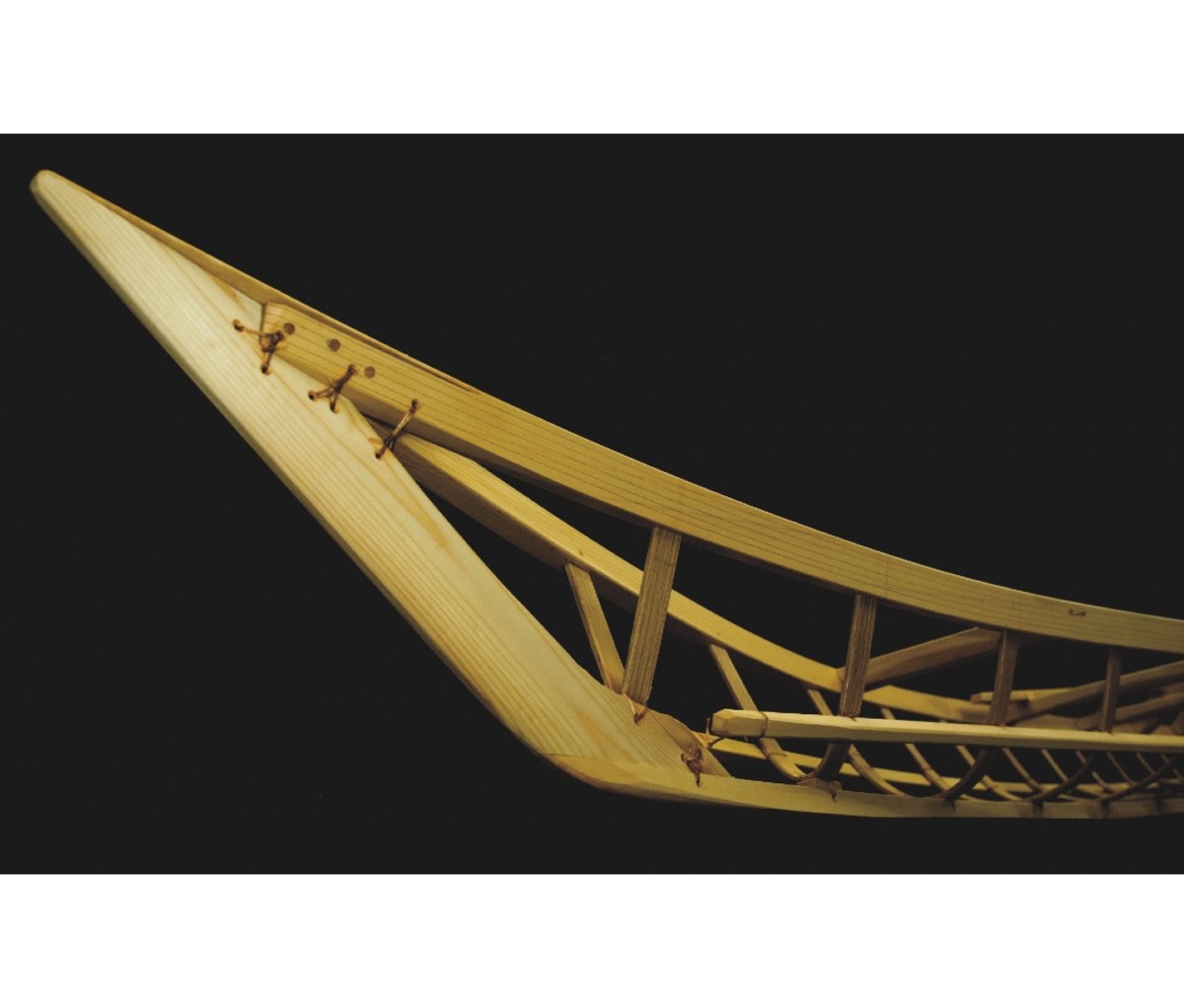
Now Schade owns Guillemot Kayaks, where he builds custom boats and teaches multiday workshops guiding clients through the boat-building process themselves. “If I could paddle all day and get paid for it, I would do that, but I really enjoy getting people hooked on building their own stuff. Getting out on the water and going around a remote island on the coast of Maine in a boat you made yourself is pretty cool.”
Schade uses quarter-inch-thick strips of western red cedar, which he staples to a mold, building the boat one strip at a time, gluing the pieces of wood to each other until the boat takes shape. Then he sands the wood smooth and lays fiberglass cloth and epoxy onto the wood, inside and out.
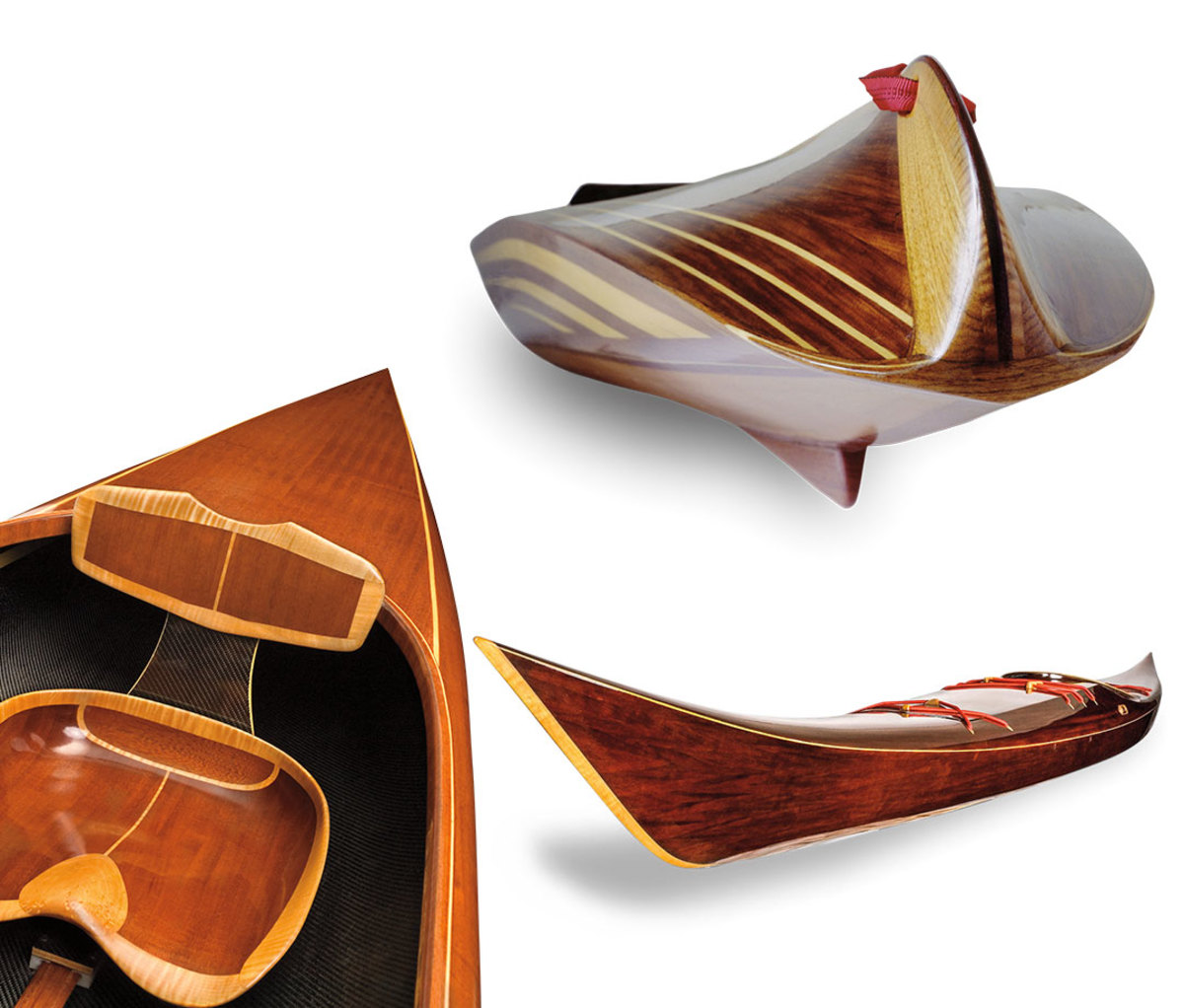
“It’s fun to turn a pile of little sticks of wood into this vessel that can go out on the water,” Schade says. “Wooden boats in general are something people can connect to, partly because the hands-on aspect is straightforward. You’re taking a large piece of wood, making it smaller, connecting it to other pieces of wood and making it a boat. As a whole it seems intimidating, but step by step, it’s all pretty simple.”
The process might be simple, but the result is stunning. Schade’s kayaks are works of functional art—literally. The Museum of Modern Art in New York City has one of them in its permanent collection.
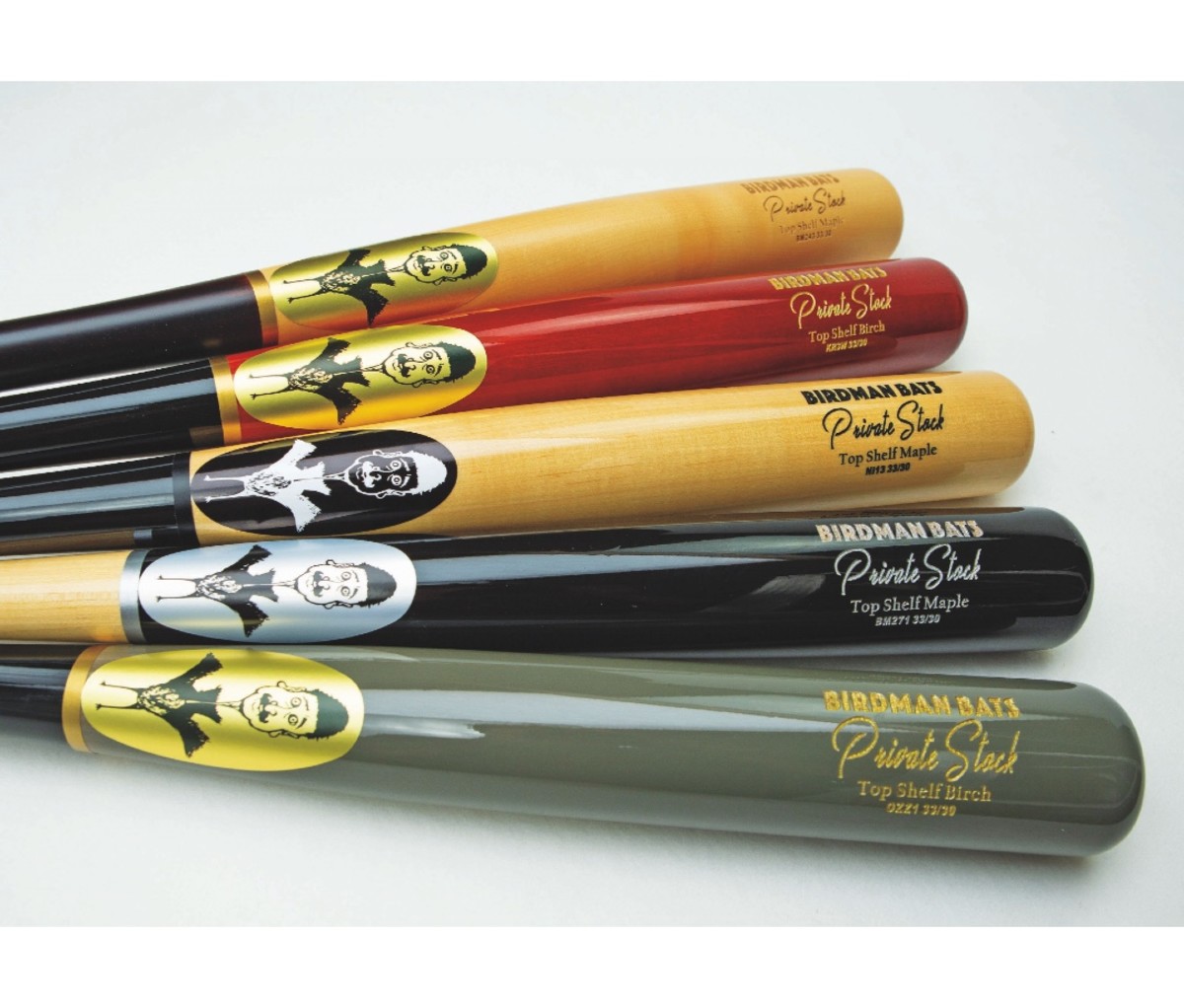
Gary Malec — Birdman Bats
Gary Malec knows that the winged cartoon figure emblazoned on his Birdman Bats is silly. That’s the point. Gary’s brother drew the Birdman as a doodle when he was playing college baseball and Malec decided they had to use it as the logo for their company’s bats. “It’s a crazy drawing to remind hitters to stop getting so stressed,” Malec says. “Have fun. You’re playing a game.”
Given that some of Malec’s clients step up to the plate at the game’s highest level, perhaps they can be forgiven a bit of performance anxiety. Birdman Bats is one of about 30 independent bat makers that provide bespoke lumber to Major League Baseball players. While MLB is a tightly governed entity that controls every aspect of the game down to the temperature of the room in which baseballs are stored before each game, batters are allowed to choose their own bats, as long as those bats meet league guidelines. And some of the best ballplayers in the world choose Birdman Bats, including reigning National League MVP Bryce Harper and fan-favorite Ozzie Albies.
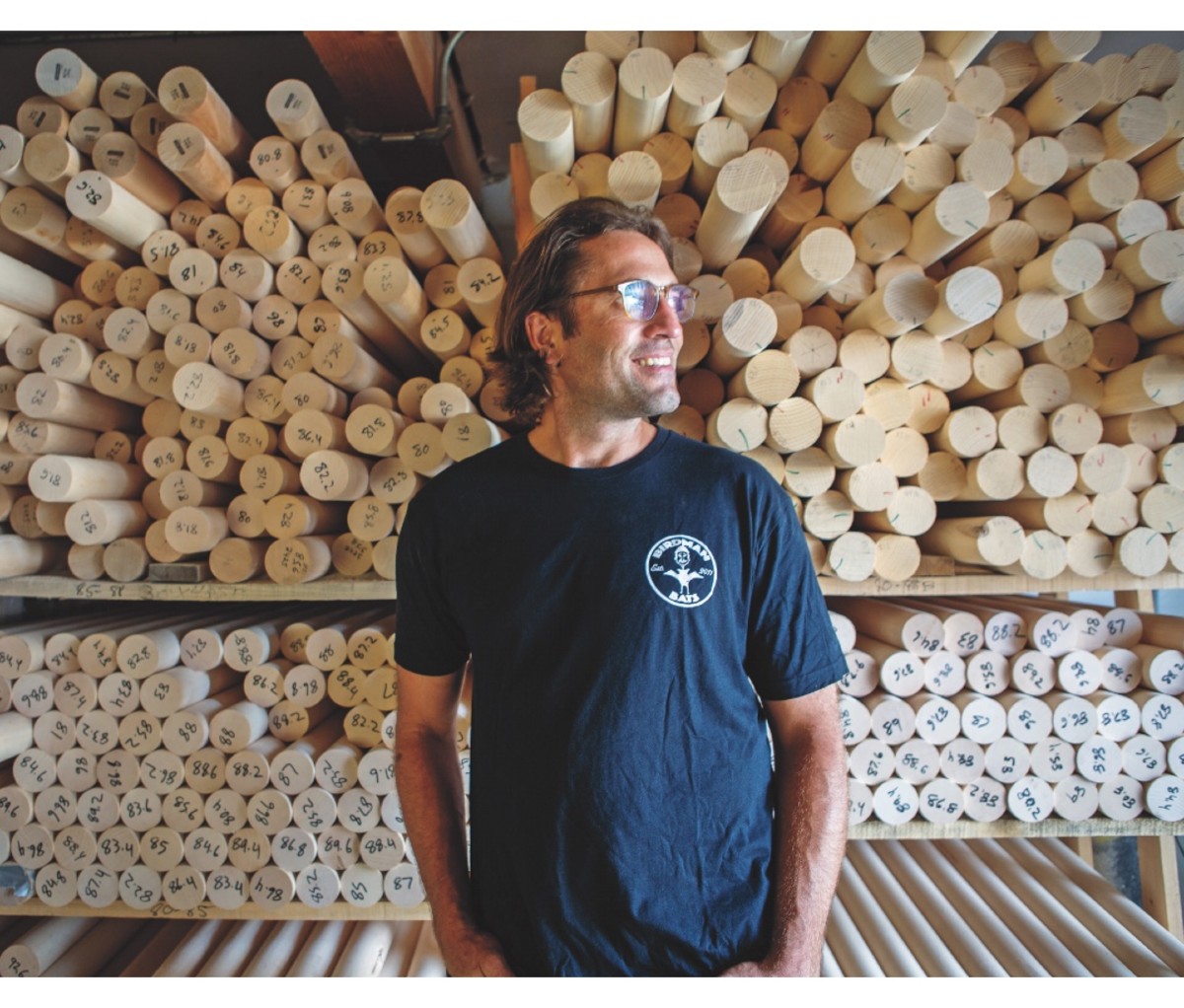
Malec crafted his first bat for himself just for fun while playing summer league baseball in San Francisco, using a lathe he bought off Craigslist. He didn’t have any training as a woodworker, but was always a handy guy, renovating houses and fixing cars with his father, and he liked the process. He made more bats for his coaches and fellow players, eventually getting them into the hands of a few minor and major league ballplayers. The business has grown organically from there. Malec’s original lathe is still part of Birdman’s shop, but all the company’s bats are now carved by a computer-automated machine before a painstaking hand-sanding and sealing process.
“It’s just a stick, right? But there’s no manual or class you can take to learn how to make a bat,” Malec says. “And it’s a hush-hush industry because bat-making is such a small space, so we figured it out on our own.”
Malec says Birdman Bats stand out from the crowd because of the wood he chooses. Traditionally, wood bats are made out of ash, but these days, more independent makers are working with different hardwoods with different attributes. Malec is a particular fan of birch. “Ash wears out and breaks too easily,” Malec says. “Birch has longer fibers that are lighter and more durable. It actually gets harder and more dense the more you hit with it.”
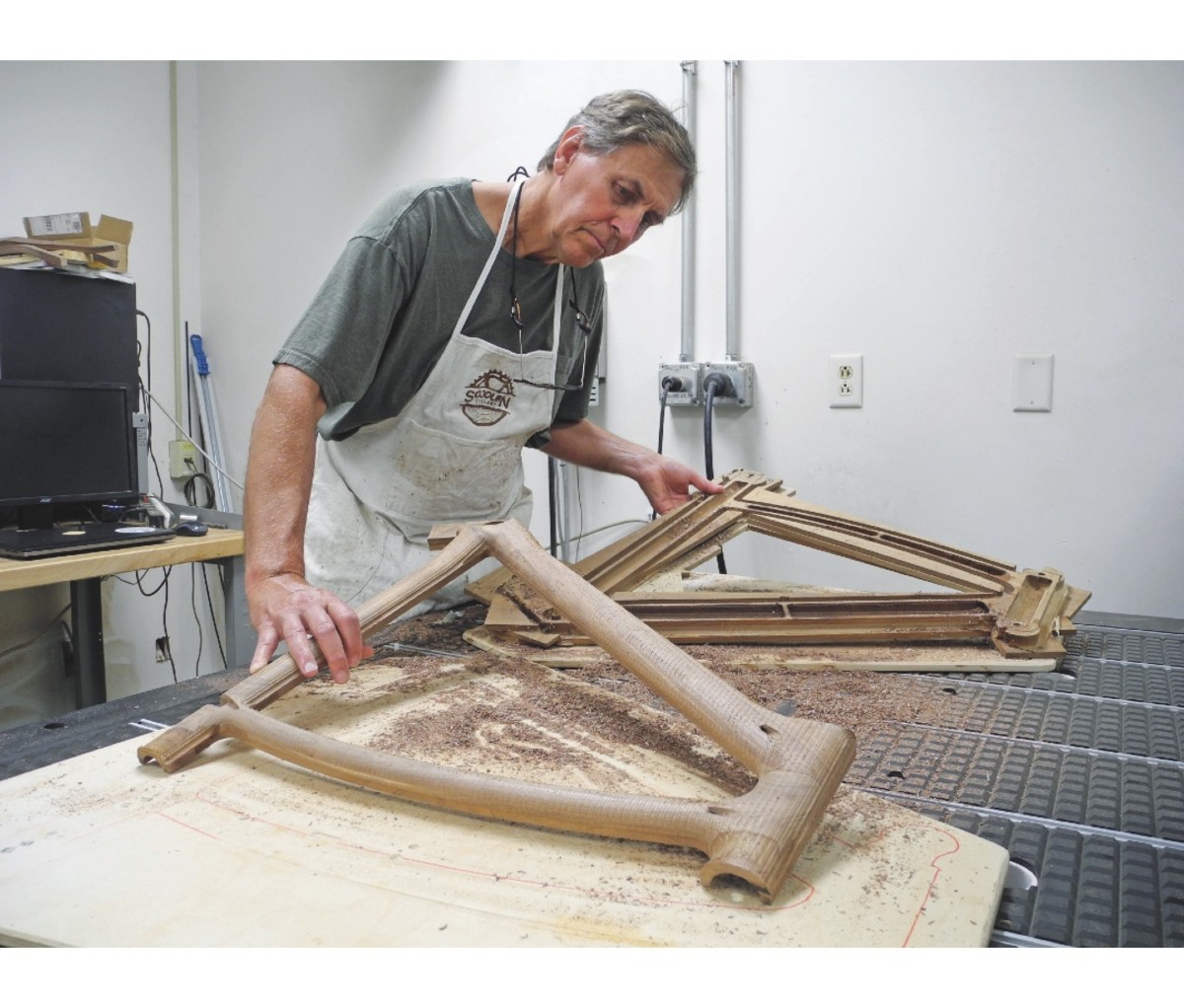
Jay Kinsinger — Sojurn Cyclery
Jay Kinsinger built bike frames from steel for years until he decided to try his hand at building a wood frame. It took 400 hours using mostly hand power tools, but he was smitten with the process—and the results. “It was such a neat experience, and you can’t be shy when you’re riding a wood bicycle,” he says. “Everyone notices it and wants to talk to you about it.”
While riding his first wood bike, Kinsinger discovered there’s more to the material than just its stunning appearance. “Wood is a great material for bike frames because it absorbs all of the road vibrations and delivers a smooth ride,” he says. “Wood is more than just a pretty face.”
Kinsinger is a mechanical engineer who teaches at Cedarville University in Ohio, but he was born into woodworking. His father was a wood shop teacher, and Kinsinger has been making furniture and sculptures as a hobby for most of his adult life. The wood bike frame combined his passions for cycling, woodworking and engineering, so he started crafting high-end custom bikes for clients under the banner of Sojourn Cyclery seven years ago. He says a lot of his clients want gravel grinders right now, but he’s made everything from 29er mountain bikes to tandem road bikes. The wood he uses, sustainable black walnut, has an exceptionally good strength-to-weight ratio, so his bikes are as strong and light as a metal-framed bike, plus almost all vibrations are absorbed by the walnut. And wood allows him to be more creative when he’s designing frames.
“I’m not limited to straight lines. I can do steam bending and create curves. Wood lends itself to a very elegant frame,” Kinsinger says. “And people have a real connection with wood that’s hard to describe. It has a nice, organic feel to it that makes you want to touch it and caress it.”
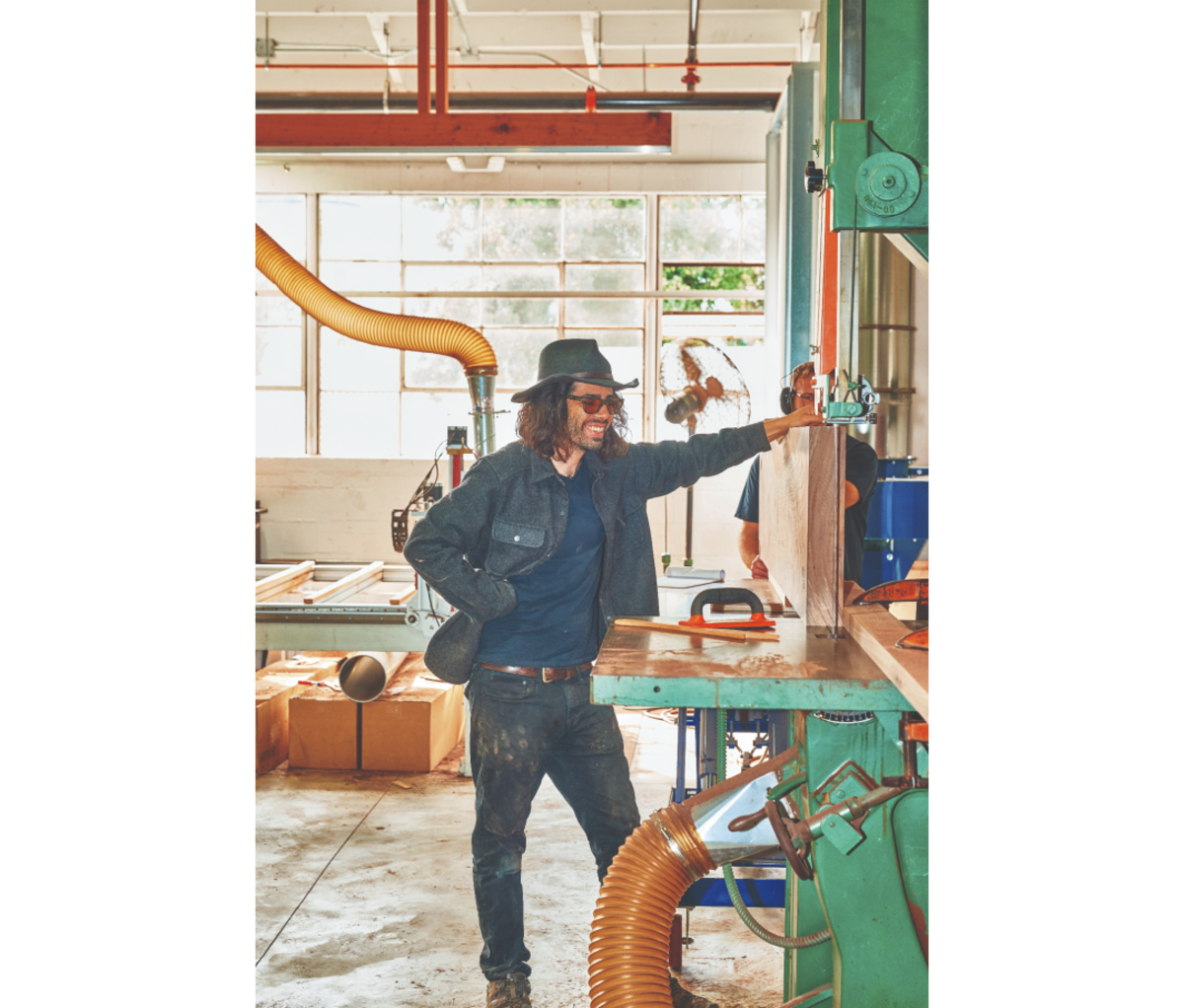
Taylor Donsker — Donsker Designs
You can call the pieces that Taylor Donsker makes “furniture,” but the word doesn’t do justice to his work, which blends elements of architectural philosophy and traditional woodworking to create pieces that often defy categorization. Think: coffee tables inspired by earthquakes with uneven slabs that can be rearranged. Most recently, he’s using a chainsaw to carve a series of furniture out of a single tree, like a chair carved out of chunks of trunk.
“For the first time, I’m really utilizing the chainsaw for a large portion of the process,” Donsker says of these borderline primitive pieces of furniture. “It’s fun for me to expand into sawing whole trees, where the tree is the piece. Where I’m carefully and thoughtfully cutting the tree so the remnants can become future pieces of furniture.”
Regardless of what the end result is, the beginning always starts with the wood selection. “Ultimately, I let the wood guide me into what the piece wants to be. The first step is finding the right piece of wood. Does it have the right shape? The right grain? There are so many nuances to that first step. Once you nail that first step, everything else falls into place.”
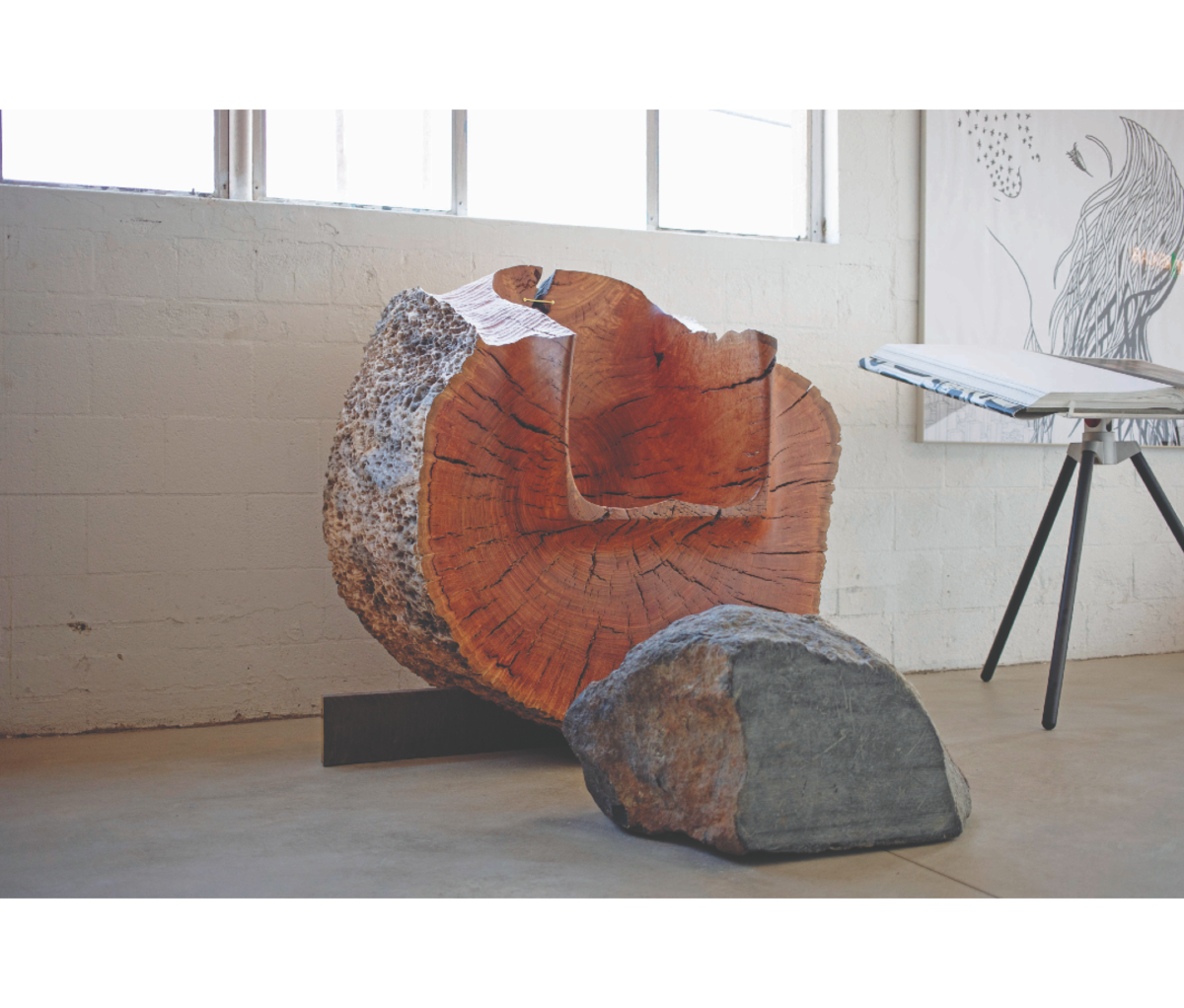
“It’s an experiment in pushing the boundaries of woodworking,” Donsker says. “I’m constantly trying to challenge myself to make something interesting or beautiful or difficult and really pull it off.”
Donsker was trained as an architect and only started making furniture as a way to break into the business during the recession in 2010. Architectural firms weren’t hiring, so he though designing furniture might lead to designing houses. But he fell in love with furniture and hasn’t looked back.
“Furniture is a smaller form of architecture,” Donsker says. “You embody a chair similar to how you embody a space. I get my fix from wanting to do architecture by doing larger scale furniture pieces. And I love the way it works in a house. With a well-designed modern home, the furniture can either enhance the space of take a way from it.”
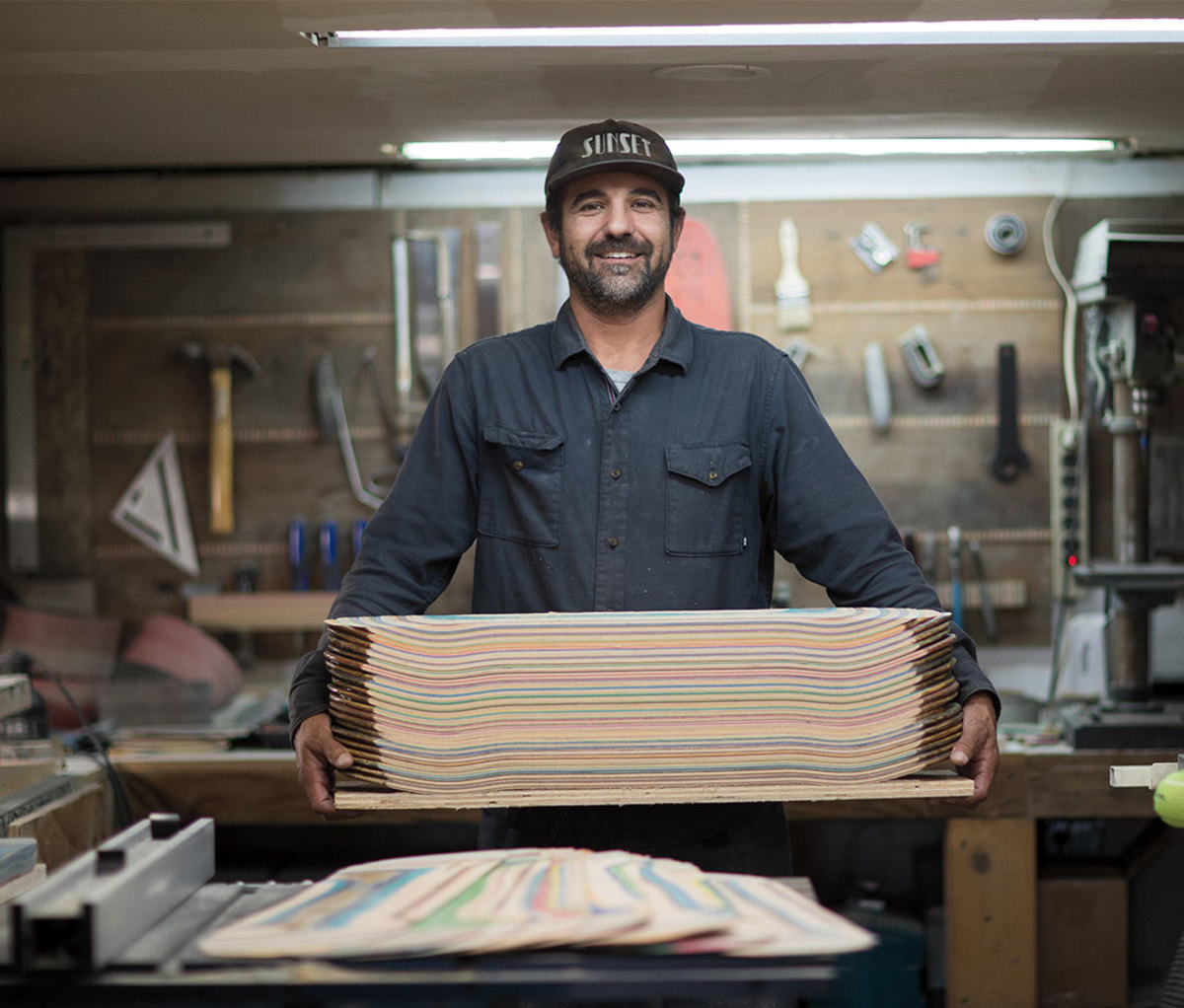
George Rocha — Iris Skateboards
George Rocha doesn’t watch much TV. He doesn’t spend much time in bars, either. Chances are, if George is awake, he’s either skating or building something in his workshop.
“Honestly, my job is what I do for fun,” Rocha says. “It’s painstaking and time consuming, but it’s how I want to spend my time.”
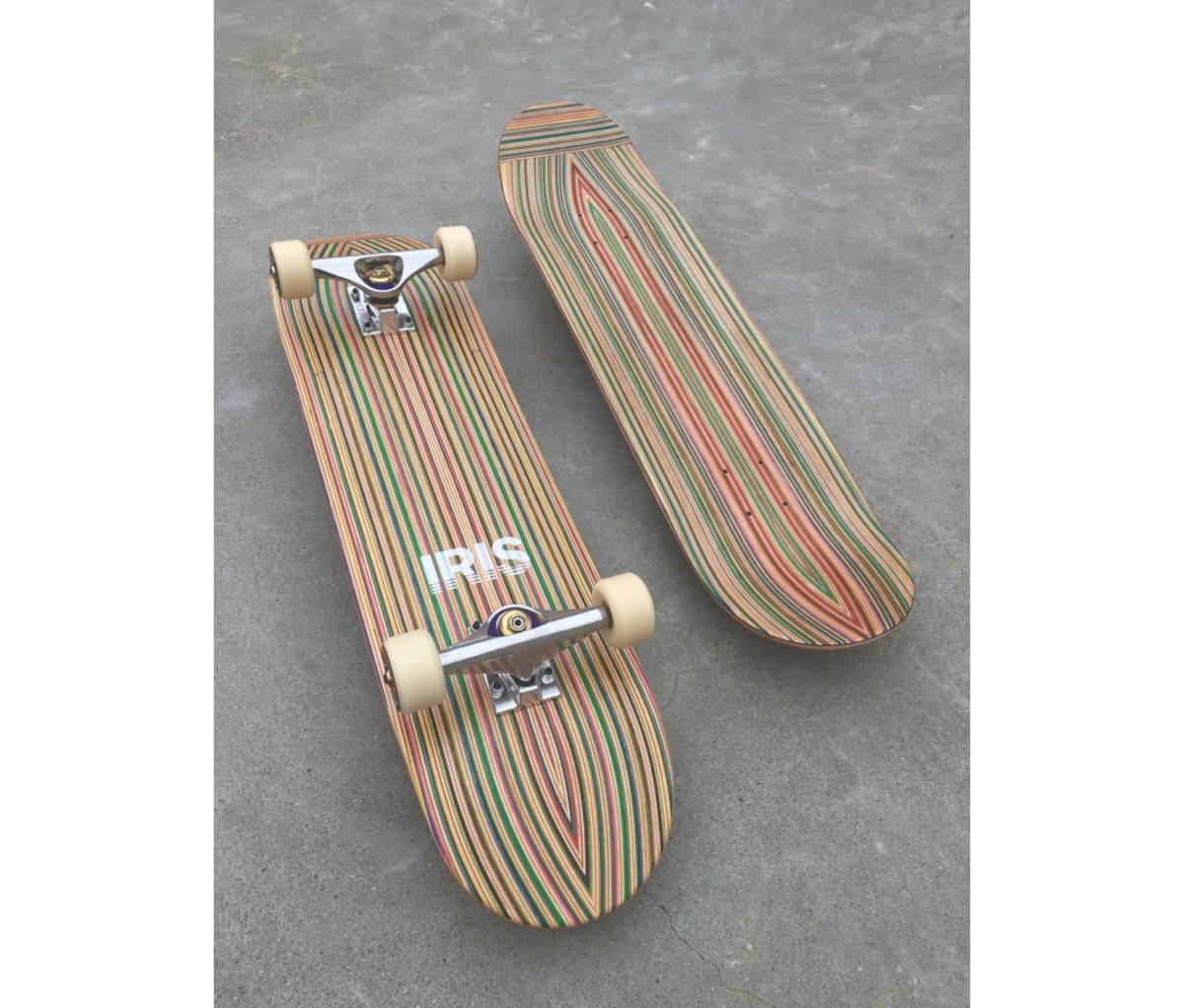
Rocha owns Iris Skateboards, where he upcycles stacks of old skateboards into beautiful, rainbow-colored new skateboards. The process involves taking 20 or more old boards and gluing and pressing them together to make a solid block of wood. From there, Rocha cuts it into the shape of a new deck and finishes it to highlight the multicolored layers of each, recycled board. It’s the definition of functional art.
“I was beyond proud when I made and rode my first board,” Rocha says. “I was beaming as I rolled down the street. I was blown away by the fact that I could make something out of other things people didn’t want anymore.”
Becoming a woodworker was natural for Rocha, who was ingrained with a DIY sensibility at an early age by a father and a grandfather who did everything themselves, from pouring their own driveway to fixing their own cars. “I learned how to weld when I was 10,” Rocha says. “My family was old school.”
After dialing in the process of making skateboards, Rocha started making surfboards and furniture from the same recycled boards. He makes custom tables, stools and countertops that have the same, wavy rainbow aesthetic. Tony Hawk bought the first surfboard he ever made. Now he’s started making sculptures, partnering with Vans to create a large piece that will be revealed during the upcoming Vans U.S. Tour.
“Furniture was a natural progression from skateboards, and the sculptures are a natural progression from furniture,” Rocha says. “I like to keep evolving to keep things interesting for myself.”
from Men's Journal https://ift.tt/yidDIHl






No comments:
Post a Comment